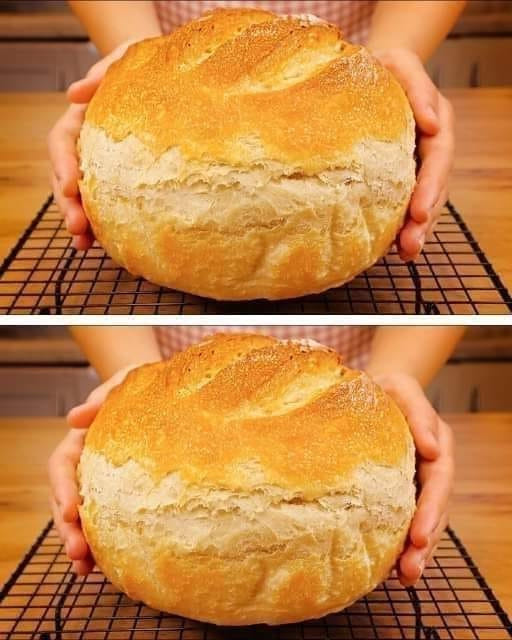ADVERTISEMENT
The yeast may be activated by mixing together the sugar, water, and dried yeast in a big basin. Give it a little stir, cover it, and let it sit for five minutes. In order to get the yeast ready to make dough, this procedure is called activation.
Pour in the sunflower oil. Then, add the flour. To make sure the flour is well-incorporated, sift it into the batter slowly. The flour is aerated and lumps are prevented by sifting, which also contributes to a lighter bread texture.
Initial Rise: Knead until a thick, sticky dough has formed. The dough has to rise for an hour in a warm spot, covered with a towel, so it may double in size.
After the dough has risen, give it a quick stir for another 30 seconds. Recover and let sit for another half an hour.
Coat your work surface lightly with flour and shape the dough into a rectangle. After ten minutes of resting, fold it over upon itself and cover with a bowl.
Roll out the dough to the thickness you choose after flouring the surface. This is the last shaping step. Prepare it for baking by shaping it to your liking.
Put the formed dough on a baking sheet and bake. You are welcome to add some ornamental slashes on top if you like. Thirty to forty minutes at 230°C (446°F) in a preheated oven will get the mixture golden brown and cooked thoroughly.
Allow the bread to cool for a little while before cutting it before serving. The bread's flavor and texture are both improved, and it's also simpler to cut.
Indulge in the joys of freshly baked bread with little effort using this German bread recipe. This recipe is perfect for days when you're short on time but still want a homemade bread fix because of how easy it is to create and the few ingredients needed.
Bring the comforting scent of freshly baked bread into your house as you savor the ease and joy of baking with this recipe. No matter how much or how little experience you have in the kitchen, this German bread will quickly become a favorite.
ADVERTISEMENT
